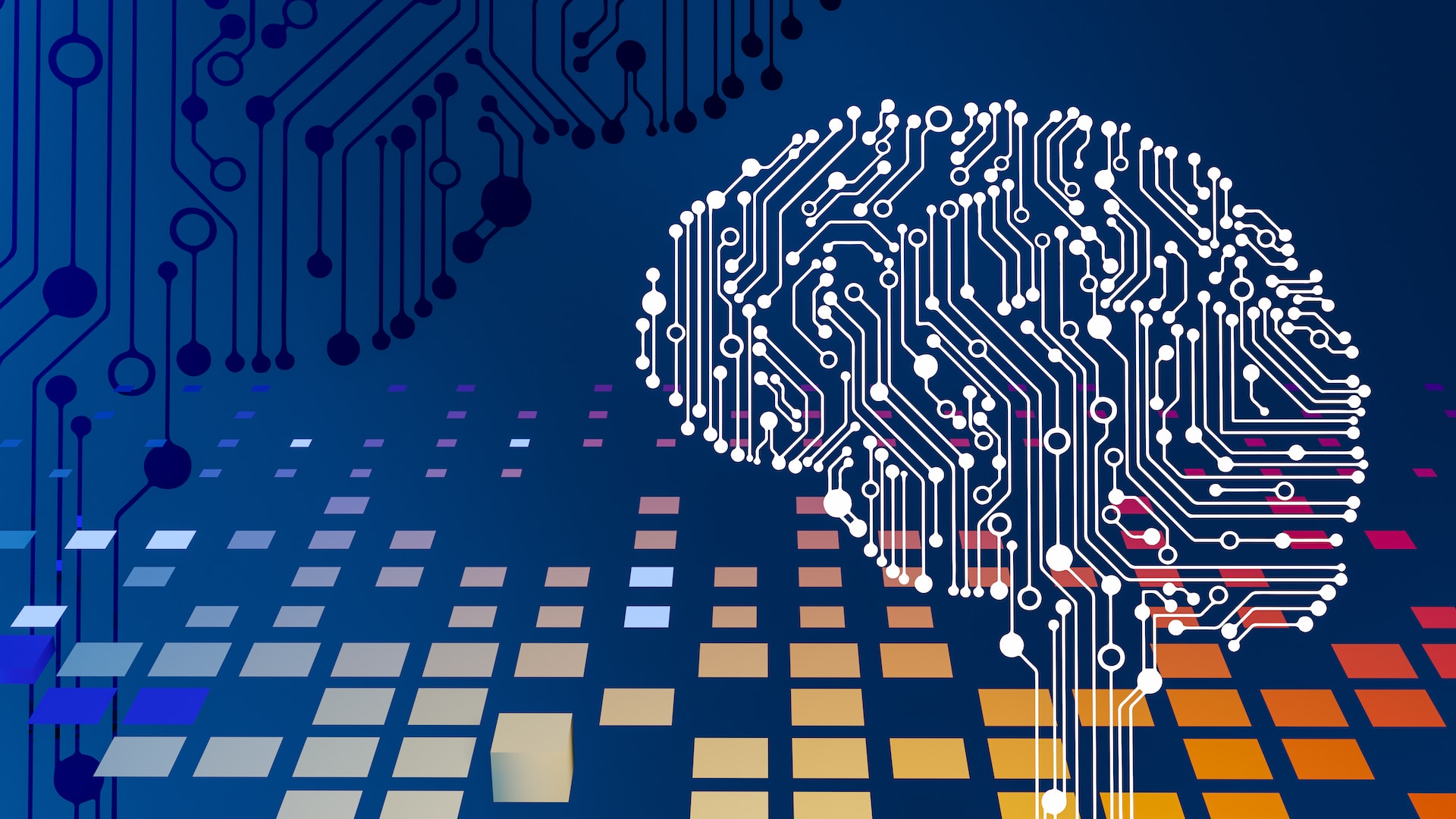09 Dec

|
Getting your Trinity Audio player ready...
|
In today’s changing world of information technology, the shift towards cloud migration has become crucial for organizations aiming to enhance their agility, scalability and cost-effectiveness. This article explores the impact and transformative role of cutting-edge technologies like Artificial Intelligence (AI), Machine Learning (ML), and DevOps in revolutionizing cloud migration services.
Migrating to the cloud is no longer a decision; it has become a strategic necessity for businesses navigating the complexities of the digital era. As organizations strive to stay competitive in the IT landscape, understanding how AI, ML and DevOps work together to improve the effectiveness of cloud migration becomes essential. This article delves into the relationship between these technologies, uncovering their efficient contributions to modern IT strategies.
Table of Contents
Understanding Cloud Migration
In the evolution of IT, understanding cloud migration is crucial for organizations seeking solutions.
The Importance of Cloud Migration
The need for cloud migration arises from the evolving requirements of businesses. Organizations increasingly demand efficient data management solutions that can adapt to the nature of their operations.
Cloud migration provides a path for transitions from traditional on-premise infrastructures to more flexible and scalable cloud environments.
Challenges in Traditional Migration Approaches
Migration methods face obstacles such as downtime, data loss and limited scalability. These challenges require a reassessment of techniques. Recognizing the limitations of systems is a first step in exploring alternative strategies like Artificial Intelligence, Machine Learning and DevOps. These approaches can help overcome these limitations and drive organizations towards resilient cloud adoption.
AI in Cloud Migration
1. Intelligent Data Analysis
AI empowers data analysis by predicting patterns and optimizing resource utilization during migration. This proactive approach minimizes. Enhances efficiency.
2. Predictive Analytics for Resource Allocation
Machine learning algorithms leverage analytics to ensure resource allocation. This leads to performance and resource utilization, resulting in an efficient cloud infrastructure.
Machine Learnings Impact
Machine Learning (ML) brings about transformations in cloud migration processes through its influence on decision-making and continuous optimization.
1. Automated Decision-Making Processes
ML plays a role in automating decision-making, reducing the need for intervention during cloud migration. This automation needs to speed up the migration timeline. It also enhances the adaptability of cloud services.
By utilizing machine learning (ML), organizations can swiftly make informed decisions that enhance the efficiency of the migration process.
2. Continuous Optimization
ML algorithms continuously analyze and optimize operations, ensuring that cloud resources seamlessly align with evolving demands. This adaptive approach is crucial for maintaining peak performance, enabling organizations to adjust their infrastructure in response to changing workloads. The continuous optimization facilitated by ML contributes to the efficiency and resilience of cloud services, making it a vital aspect for organizations navigating the complexities of IT landscapes.
Integration of DevOps
1. Enhanced Collaboration
DevOps practices foster collaboration between development and operations teams, streamlining the migration process. This collaborative effort promotes efficiency. Expedites the deployment of cloud services.
2. Automation in Deployment
Automation plays a role in DevOps, and its application in deployment processes improves consistency and reduces the chances of errors during migration.
Benefits of AI, ML and DevOps in Cloud Migration

Embracing integrating artificial intelligence (AI), machine learning (ML), and DevOps in cloud migration offers advantages for organizations navigating the landscape.
1. Cost Efficiency
The synergistic use of AI, ML, and DevOps leads to costly cloud migrations. Automated processes and optimized resource utilization contribute to savings.
2. Enhanced Security Measures
Implementing security measures driven by intelligence and following DevOps best practices enhances the overall security of cloud environments. These measures are crucial for safeguarding data integrity and protecting against threats.
3. Scalability and Flexibility
Combining machine learning and DevOps enables scalability, allowing organizations to adapt to changing workloads. This flexibility is vital for maintaining competitiveness in today’s era.
Real-world Applications
1. Case Studies
By examining real-world case studies, we gain insights into successful cloud migrations that leveraged the power of AI, machine learning and DevOps. These examples highlight the impact across industries.
2. Success Stories
Emphasizing success stories showcases the benefits organizations have achieved by implementing these technologies.
Overcoming Challenges
1. Data Security Concerns
Addressing data security concerns becomes a priority during cloud migration. Implementing AI-powered encryption techniques and following DevOps practices play a role in mitigating potential risks.
2. Integration Complexities
Understanding and effectively managing integration complexities is crucial. By adopting DevOps practices, organizations can streamline collaboration while leveraging AI capabilities to identify integration challenges in the migration process.
Future Trends
1. Evolving Technologies
This article delves into the trajectory of AI, machine learning and DevOps in cloud migration. It offers insights into emerging technologies that will shape the landscape in the future.
2. Industry Adoption
Analyzing how different industries adopt these technologies guides organizations in planning their cloud migration strategies.
Best Practices
1. Planning and Assessment
Effective planning and assessment are essential to ensure a migration. This section presents a set of practices to help organizations take a strategic approach.
2. Continuous Monitoring
After the migration, continuous monitoring becomes crucial. Both AI and DevOps play roles in maintaining performance levels and promptly resolving any potential issues.
Expert Opinions
1. Insights from Industry Leaders
Gaining insights from industry leaders can provide an understanding of how to incorporate AI, ML and DevOps into cloud migration strategies.
2. Expert Recommendations
Practical advice from experts offers guidance for organizations embarking on their journey of migrating to the cloud.
Visit Headquarterlocation to Discover Top Cloud Migration Companies.
Implementing AI, ML and DevOps in Your Cloud Migration Strategy
Steps for Seamless AI Integration
This section provides steps for organizations aiming to integrate AI into their cloud migration strategy.
Leveraging Machine Learning
Guidance on leveraging machine learning is discussed with an emphasis on achieving results in cloud migration through adaptability and continuous improvement.
Integrating DevOps Practices
Integrating DevOps practices is highlighted, emphasizing collaboration, automation and efficiency throughout the migration process.
Case Studies
- Successful Cloud Migrations
In-depth case studies showcase the strategies used in cloud migrations, underscoring the role played by AI, ML and DevOps.
- Lessons Learned from Failures: Analyzing past failures offers insights for organizations, helping them refine their strategies when migrating to the cloud.
- Measuring Success: Key Performance Indicators (KPIs) – Measuring performance indicators after the migration ensures that organizations can quantify the success of their efforts in moving to the cloud.
- Monitoring and Evaluation: Continuous monitoring and evaluation are crucial for improvement, enabling organizations to adapt to evolving needs and technologies.
Conclusion
In summary, integrating AI, ML and DevOps in cloud migration services represents a shift in how businesses approach transformation. These technologies work together harmoniously to establish pathways towards efficiency, heightened security and scalable cloud environments. This transformative collaboration reshapes approaches, propelling organizations into an era of streamlined processes and optimized infrastructure. By leveraging AIs data analysis, MLs automated decision-making capabilities, and DevOps streamlined deployment processes not only address existing challenges but pave the way for a future where cloud services become essential for success and offer strategic advantages. As organizations embrace these synergies, they position themselves for an adaptable digital future where seamless migration to the cloud becomes a cornerstone of their achievements.
FAQs
Q: How do AI and ML enhance security when migrating to the cloud?
A: Security measures powered by AI and algorithms play a role in identifying and countering potential threats and ensuring data integrity.
Q: What advantages does incorporating DevOps bring to cloud migration?
A: By embracing DevOps practices, organizations can streamline collaboration deployment processes. Improve overall efficiency, leading to successful cloud migrations.
Q: Can you provide examples of industries that have successfully adopted AI, ML and DevOps in their strategies for migrating to the cloud?
A: Absolutely! The article covers real-world cases from industries that highlight the implementation of these technologies.
Q: How can organizations overcome the challenges of integrating systems during cloud migration?
A: Leveraging DevOps practices is instrumental in addressing integration complexities as it fosters collaboration and enables the identification of challenges throughout the process.
Q: What trends should we anticipate regarding AI, ML and DevOps that will impact cloud migration?
A: This article delves into emerging technologies and industry adoption trends to provide insights into how these transformative technologies will shape the future of cloud migration.
Photo by Unsplash


